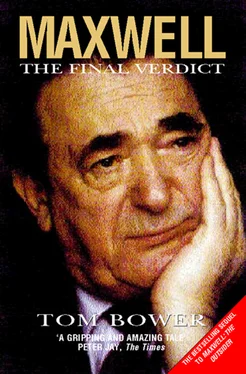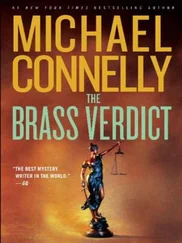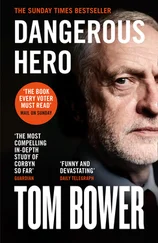To prove the point, Cowling was shown certificates for 1 million shares in Banco Commercial Portugues. Although owned by BIM, Maxwell had already pledged the shares against a loan. Among other certificates promised was one for 12 million MCC shares ‘lent’ by BIM to LBI. Trachtenberg had pledged those shares with Goldman Sachs and, to cover that discrepancy, he offered a polite letter to Cowling simply stating that LBI ‘held’ the share certificate.
Cowling would return to Cook towards the middle of February: ‘I’ve received all the information I need from LBI. Everything’s fine.’ Since Cook was not an accountant but an administrator, he gladly accepted Cowling’s assurances. ‘It’s miraculous,’ thought Highfield. ‘They say there’s no problem any more.’ He reasoned that after all LBI was staffed by men – Tapley, Donoughue, Ford, Carson and Trachtenberg – of higher qualifications than himself.
Cowling’s only caveat was that he would send a letter to BIM listing the serious problems to be solved. There were, he would write, ‘control deficiencies and weaknesses’ in BIM and confusion because share certificates were kept in Various locations’. He noted a catalogue of errors in BIM’s accounting system and stated that ‘LBI’s systems had collapsed.’ His conclusion was that there was need for a substantive review, ‘due to lack of basic controls’. But he did certify that the pension funds possessed £792 million, adding that the interest earned from lending money to Maxwell was £0.5 million and that ‘this should please the pension fund’. The audit was completed. Maxwell’s special arrangements remained concealed.
Robert Maxwell greeted the news of Cowling’s self-deception by immersing himself among the famous and rich to discuss the world’s problems. Constant travel was not only a distraction from what he still believed were temporary difficulties but immunized him from reality. He flew to Davos in Switzerland to address the World Economic Leaders. After a dinner at the Fluela Hotel, where he reassured the chairman of Crédit Suisse of his empire’s well-being, he basked in the limelight of constant receptions and meals, happily anticipating his own lecture on ‘Acquiring Media in Eastern Europe’. Naturally, when he delivered the lecture, Maxwell did not confess that his own efforts in Berlin, Sofia, Prague, Zagreb and Moscow were proving expensively unprofitable. Instead he boasted about his close relationships with presidents and ministers across the continent, especially with Mikhail Gorbachev. That relationship, cemented in Minneapolis, Minnesota in June 1990 during their joint consecration of the $100 million Gorbachev Maxwell Institute, had propelled Maxwell’s self-esteem to new heights. Although he had unfortunately forgotten to contribute his promised $50 million towards the institute, founded with the lofty intention of uniting the world’s scientists, the pictures and soundbites of Gorbachev praising Maxwell and warmly shaking his hand had been profitably flashed by satellite around the globe.
That impression of influence was the reason for the request by Yitzhak Shamir, Israel’s prime minister, for Maxwell to visit Jerusalem on 12 February. Shamir needed Maxwell’s help in passing a message to Gorbachev about the danger posed by Iraq should the war with Kuwait spread to Israel. The proximity to power and his importance in Israel, where every minister made himself available, gave Maxwell special pleasure. At the end of twenty-four hours of meetings in Jerusalem he flew on to Zagreb to meet Rudi Perpich, in order to finalize preparations for Maxwell’s hoped-for television and newspaper empire in Croatia. Perpich, hired as Croatia’s lobbyist after his defeat in the Minnesota elections, knew how to impress Maxwell. Lunch had been arranged with President Tudjman to celebrate the signing of letters of intent, an encounter which took place on former President Tito’s Mediterranean island, in the breathtaking villa compound. Perpich watched Maxwell’s spirits rise as he savoured the treatment normally accorded to heads of state. By the second day, Perpich was impressed to find that the visitor had, within his first twenty-four hours on the island, learnt sufficient Croatian to speak with the president without an interpreter. On their return flight to London, for Perpich’s benefit Maxwell reflected at length upon his own glory, ignoring the cost of flying 6,000 miles to earn nothing. At £3,500 per hour, the Gulfstream’s journey cost over £90,000 – £50,000 for the flight plus £42,815 for insurance in a war zone.
Maxwell’s distance from reality struck Rupert Murdoch, who had at last fulfilled a long-standing and much postponed visit on 11 February. ‘We are two big publishers,’ Maxwell had boomed on the telephone, ‘and we should talk.’ Murdoch’s secretary had taken the precaution of warning Maxwell that her employer could not be kept waiting and that he had precisely forty minutes before the next appointment. Their recent but rare encounters, thought Murdoch as he ascended to the ninth floor of Maxwell House, had invariably been characterized by Maxwell’s bombast and Murdoch’s teasing response. Ever since he had outwitted Maxwell in 1969 to win the News of the World , Murdoch’s capacity to irritate him had grown.
At ten minutes past four, five minutes into their meeting, Murdoch’s impatience with Maxwell was turning into contempt. With few pauses for breath, Maxwell was boasting about his worldwide diplomacy, especially his intimate relations with the Kremlin and with the leaders of Israel. His self-indulgence had bemused and then silenced his visitor. At the end of forty minutes, Murdoch asked: is there anything else we need to talk about?’
‘No,’ replied Maxwell with a satisfied grin. In his opinion, he had proved his importance to his rival.
As Murdoch descended to the street, he exclaimed, ‘What was all that about? He’s ludicrous.’
Even for Maxwell, the glow was brief. Five days later, at seven o’clock on the morning of 16 February, he was once more sitting in his kitchen, switching television channels while George Wheeler applied L’Oréal to his hair. The Gulf war, one month after the first Allied attacks, dominated the airwaves, especially on Murdoch’s Sky channel. Once again, Maxwell was morose. The previous evening, after landing by helicopter on the roof, he had deliberately stayed away from the cocktail party to mark Richard Baker’s retirement as managing director of MCC: disloyalty was unforgivable. He would also ignore the invitation to Andrew Lloyd Webber’s Berkshire estate that evening to celebrate the composer’s wedding. He struck that idea out of his mind. Betty could go alone. Maxwell’s thoughts were on his journey the following day to Istanbul to meet the president of Turkey. The $40,000 flight would allow him to speak to the president about the country’s participation in the Gulf war for one hour before returning home for dinner with President Zhelev of Bulgaria.
Maxwell’s interest in Bulgaria, that irrelevant and impoverished Balkan people’s republic, was irrational. Although he confided to Sir John Morgan, a former British ambassador who had joined his staff, that he felt sentimental about the country which had helped him during his escape from the Nazis in 1940, his investments in a school for business management, a newspaper, a television station, a hotel chain and a bank were costing millions without any chance of profits. Ognian Doynov, his Bulgarian adviser and a disgraced former member of the Politburo who had replaced Morgan, appeared to some to be encouraging Maxwell’s waste of money. Paid £110,000 annually plus a motor car and free company flat, Doynov could not, however, be blamed for Maxwell’s waning interest in his expensive fantasy. ‘The Bulgarians’, noted Brian Cole, Maxwell’s fixer in that country, ‘did not trust Maxwell. They just wanted his money.’ Among those travelling to Sofia as part of the team to invest MCC’s money was Helen Liddell, a future Labour member of parliament, employed as director of personnel and public affairs at the Scottish Daily Record , part of Mirror Group Newspapers. Maxwell, with Liddell in attendance, paid out millions but received little more than a royal welcome in return.
Читать дальше












